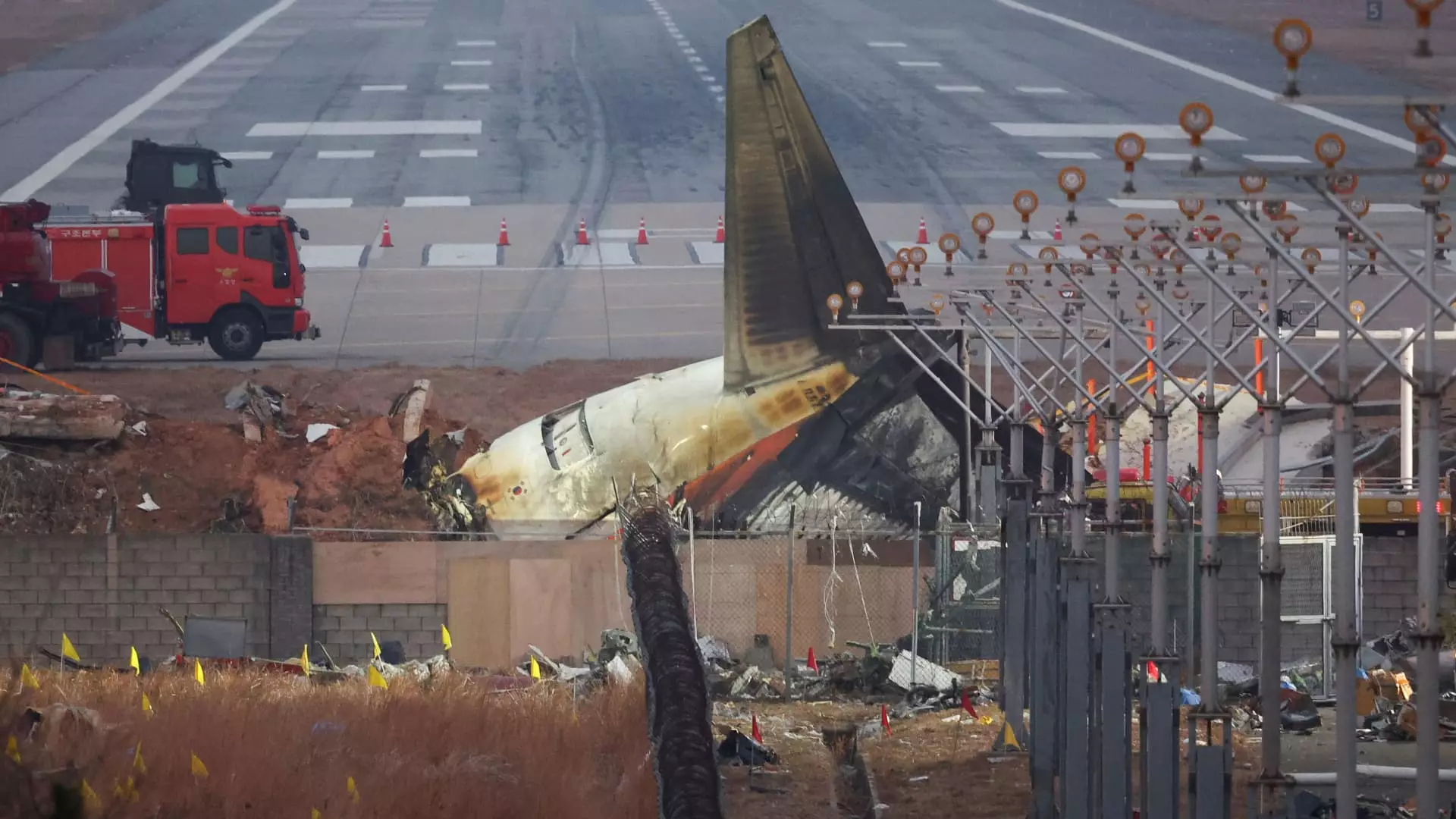The recent crash involving Jeju Air’s Boeing 737-800 has triggered significant turmoil within the aviation industry, particularly impacting Boeing’s stock values and prompting robust safety measures in South Korea. With the loss of 179 lives in a tragic incident that occurred as the aircraft approached Muan International Airport, the ramifications extend beyond immediate losses; they reach into the fabric of aviation safety and regulatory response. The subsequent drop of Boeing shares by more than 2% highlights the market’s volatility tied to aviation disasters and the ensuing investigations that follow. Here, we dive into the implications of this tragedy and what it means for Boeing, Jeju Air, and South Korea’s aviation sector.
In the wake of the crash, South Korea’s Ministry of Land, Infrastructure, and Transport (MOLIT) has embarked on an emergency safety inspection of all Boeing 737-800 planes within the country. It’s a responsible reaction from the government, aiming to reassure the public and restore faith in its domestic airline safety mechanisms. Acting President Choi Sang-mok’s directive underscores the seriousness with which aviation safety is approached in South Korea, indicating that both the government and the aviation industry need to collaborate closely to enhance air travel security.
The decision to launch a comprehensive special inspection signifies an understanding that operational readiness is paramount, addressing not only the affected airline but the entire system itself. Investigating potential mechanical failures or pilot errors can shed light on the systemic vulnerabilities that may have contributed to this calamity. Such diligence could prevent future disasters and foster a culture of safety that prioritizes passengers above all.
The investigation’s initial report concerning a possible “bird strike” just moments after a warning was issued reflects the unpredictable challenges that pilots face mid-flight. As the pilot attempted a “go-around” — a maneuver often used to abort a landing — the declaration of a “Mayday” indicates mounting distress that ultimately ended in tragedy. The involvement of multiple investigative bodies, including the U.S. National Transportation Safety Board and Boeing, suggests a thorough examination of the incident is imperative.
As black boxes are analyzed, the findings will likely probe deeper into both technical factors and human decisions. Although the Boeing 737-800 is known for its proven track record, this incident raises questions regarding the performance under urgent circumstances, especially when confronted with unexpected challenges like wildlife hazards. Examining both the flight’s operational narrative and technical specifications will be essential before concluding the contributing factors leading to this incident.
The focus on regulatory compliance and maintenance records following the crash reveals a significant aspect of aviation safety. Jeju Air’s management appears confident that mechanical faults were not to blame; however, the inquiry into their maintenance practices will be vital. In aviation, adherence to established protocols can mean the difference between safety and disaster. The need to evaluate whether there were lapses in compliance with aviation regulations is paramount, as such gaps could expose systemic flaws requiring immediate rectification.
MOLIT’s intention to revisit regulations about bird strikes, particularly near airports, signals a proactive approach to emerging risks. As low-cost carriers continue to grow in South Korea, ensuring their operational safety becomes a challenge that needs continual oversight.
Jeju Air’s plummeting stock prices, which fell to an all-time low, highlight the financial ramifications of aviation incidents. Such market fluctuations often reflect broader investor sentiment regarding the safety of the airline industry at large. Investor confidence is closely linked to operational integrity and past incidents can leave lingering impacts that may shape consumer choices in the future.
Boeing, known for its extensive manufacturing of commercial aircraft, faces increased scrutiny following this incident. The potential long-term implications for both the company and the 737-800 model could affect sales, operational support, and ongoing contracts with numerous airlines. Being a key player in global aviation, how Boeing navigates through this crisis will be essential for protecting its brand reputation and assuring customers of its commitment to safety.
The tragic event involving Jeju Air’s Boeing 737-800 serves as a stark reminder of the fragility of aviation safety amidst technological advances and operational demands. As investigations unfold, the insights gained from such tragedies often lead to reforms that bolster safety regulation, maintenance protocols, and air traffic management for the future. Both Boeing and South Korea’s aviation industry must rise to this challenge, ensuring that the lessons learned from this heart-wrenching event contribute to the vigilant safeguarding of air travel for generations to come.

